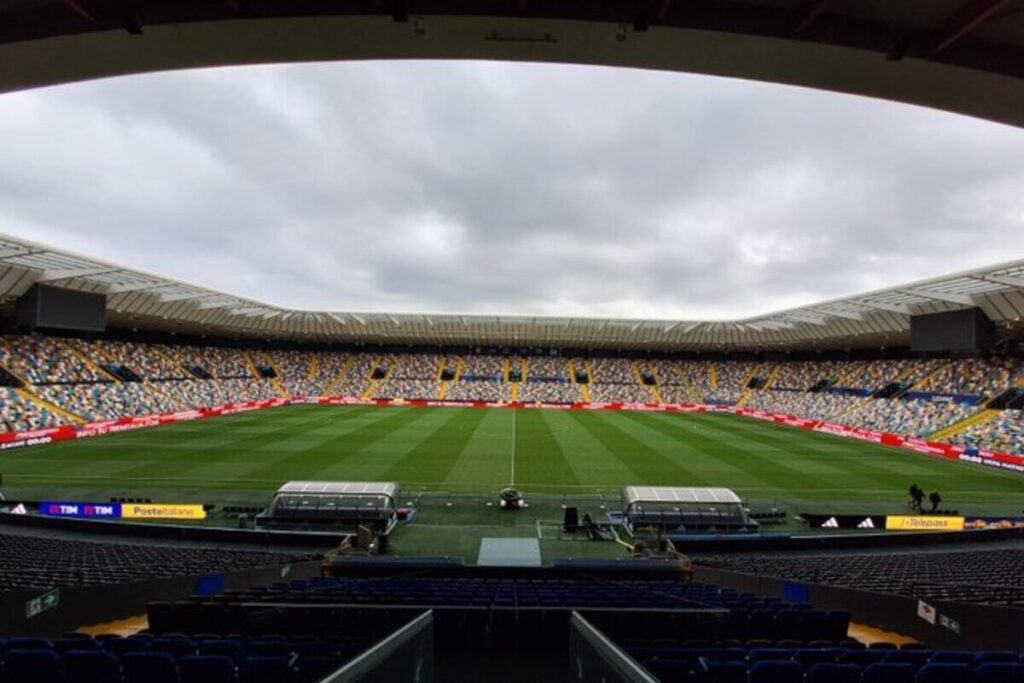Italy is set to host Israel for a Nations League match at the Stadio Friuli in Udine, but the event is facing significant limitations on attendance due to heightened security protocols. Expected to draw only around 12,000 spectators, the match will see more than half of the stadium seats left vacant. The primary reason for this reduced capacity revolves around the recent tensions in the Middle East, particularly the ongoing conflict involving Israel. Local authorities have deemed it necessary to impose extra security measures to ensure the safety of players and attendees alike.
In light of the current geopolitical situation, the Italian Football Federation (FIGC) has invited approximately 1,300 local students and amateur players to fill some of the seats. Such invitations aim to foster community involvement in the match while emphasizing a controlled atmosphere. This gesture, however, underscores the significant amount of unused space, reflecting the seriousness of the security concerns surrounding the fixture. The match’s lower-than-expected turnout is emblematic of how broader current events can directly influence the dynamics of sporting events.
To augment the security landscape around the match, local authorities have established a designated “Red Zone” around the stadium, which was effectively sealed off to the public two days prior to the game. This zone adds an additional layer of security, minimizing the risk to players and attendees. While not officially confirmed, reports suggest that the Red Zone could be part of anti-terrorism measures implemented by law enforcement agencies responding to heightened tensions and threats. Such actions serve as a reminder that the world of sports often intersects with pressing global issues.
The deployment of around 1,000 extra police officers in Udine further emphasizes the seriousness of the situation. Their presence is intended to maintain order and safeguard the safety and peace of the attendees. This additional security footprint reflects a proactive approach taken by local authorities, who are keen to ensure the event does not fall victim to any violence or disturbances. In an era where sporting events are sometimes prone to politicization and unrest, such measures are becoming increasingly common.
The decision to scale back attendance and impose strict security measures may provoke mixed feelings among football fans. While some may understand and support the need for such precautions in light of current events, others may view it as an unwelcome intrusion that detracts from the event’s atmosphere. This delicate balance between security and enjoyment is a challenge faced by sports organizations today, necessitating sensitive decision-making in turbulent times.
Ultimately, the situation surrounding the Italy vs. Israel match serves as a reminder of the broader implications of global unrest on local events. Football, a sport that typically unites people from diverse backgrounds, finds itself in a complex position, influenced by events beyond the pitch. As nations confront their differences, the world of sport is being called upon to navigate these waters carefully, ensuring that safety is paramount while striving to retain the joy that such events bring to communities.

